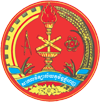PROGRAM COURSE THEMES
The curriculum offered for the Bachelor of Arts in International Studies provides each student with a comprehensive understanding of the following four interrelated themes:
International Relations and Governance Studies
International Economics and Trade
Region and Area Studies
International Law and Organization
I. International Relations and Governance Studies
This theme covers the following main areas—international relations/world politics, comparative politics, international political economy, and foreign policy. Each of these includes the respective history, development, related issues, as well as major philosophical, theoretical, and methodological approaches to the study of the area.
Courses under this theme:
IR101 Introduction to International Relations
AWA101 Atlas of World Affairs
IS203 / IS207 International Relations I and II
IS301 Political Thoughts and Ideologies
IS302 International Political Economy
IS305 Global Governance
IS307 Comparative Politics
IS402 Governance Issues in Developing Countries
IS403 Globalization and Social Change
IS401 / IS406 Foreign Policy I and II
IS404 Conflict Resolution and Negotiation
IS405 Order, Actors and Power in International Politics
IS409 International Security
IS410 Diplomacy: Theory and Practice
II. International Economics and Trade
This theme offers students a deeper understanding of the changing dynamics of global economy, finance and trade. The two prerequisite courses: Principles of Microeconomics and Macroeconomics aim to provide students with necessary background in theory and practice of economic models and concepts. They are the basic building blocks for economic policy analysis and application to real international economic settings. This theme also allows students to draw upon Cambodia’s relevant development and economic issues for class discussion and policy analysis.
Courses under this theme:
IS202 Principles of Microeconomics
IS206 Principles of Macroeconomics
IS408 International Development Economics
IE401 Applied Econometrics
IE402 Regional Economies: ASEAN, G8, BRICS and East Asia
IE403 Special Topics on Trade in Developing Countries
IE404 International Trade Theory and Policy
IE405 International Monetary Economics and Policy
IE406 Industrial Policy
IE407 International Finance
IE408 International Economic Development
IE409 Trade Negotiations
IE410 Global Digital Economy
III. Region, Area and History Studies
Courses under this theme aim to provide students with foundations of history, world civilization, and area studies. Students will be invited to explore intriguing issues and focused studies pertaining to various regions.
Courses under this theme:
ASEAN101 ASEAN Studies
WHC102 World History and Civilization
IES102 Introduction to East and Southeast Asia
IS204 Politics and Governments in Southeast Asia
IS208 Model ASEAN Summit
IS210 ASEAN in Regional and Global Contexts
IS308 Institutions in Asia Pacific
IV. International Law and Organizations
This theme includes international law, international organizations, and issues related to international law and international organizations. It covers the history and development as well as issues pertaining to the application, implementation and the international organizations that work to uphold international law.
Courses under this theme:
IS201 The United Nations Systems and Agencies
IS304 Public International Law
IS306 Model United Nations
IS407 International Human Rights Law
V. Elective Courses
IS901 History of Conflicts in Southeast Asia
IS902 Geopolitics
Contact Info

Head of Department:
- Dr. Neak Chandarith
- Email: neak.chandarith@rupp.edu.kh
- Office: Building E, IFL
Student Life

Foreign students who are interested in studying in Cambodia should first approach their national government. read more...
